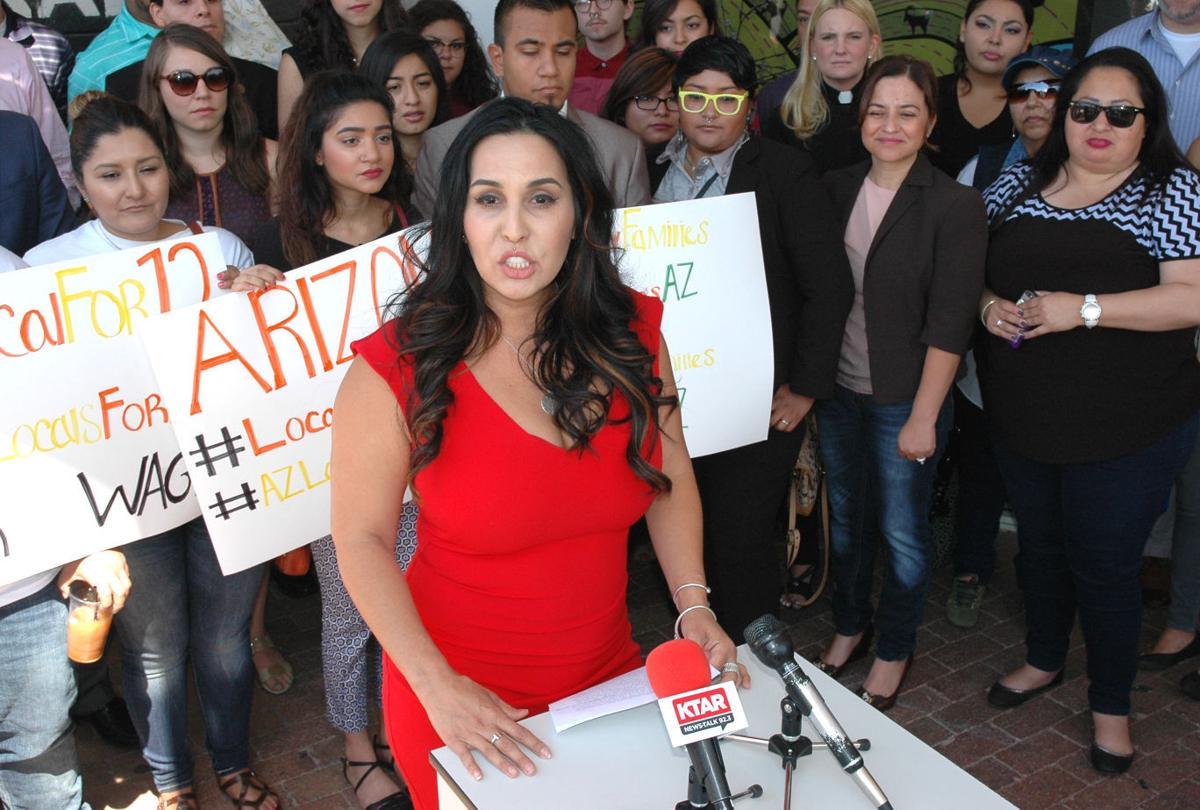PHOENIX — Foes of requiring employers to pay their workers at least $12 an hour asked the Arizona Supreme Court Wednesday to block a vote on a “deficient initiative.”
In a petition to the justices, Attorney Roopali Desai pointed out that Maricopa County Superior Court Judge Joshua Rogers judge had concluded that more than 50,000 of the signatures turned in to put Proposition 206 on the ballot should not be counted. She said that would have left the measure far short of the 150,642 needed to put the measure on the November ballot.
Desai said, though, that Rogers effectively nullified his own findings by concluding that the Arizona Restaurant Association waited too long to challenge the petitions, making the question of disqualified signatures legally moot.
Desai said Rogers got it wrong and the high court now needs to intercede.
The outcome of the appeal — and the ballot measure — ultimately will turn on how the Supreme Court interprets the phrase “five days.”
That’s the number of days after a measure is certified for the ballot that challengers have to file suit.
Desai argues that state lawmakers must have meant “five business days.” That excludes Saturdays and Sundays.
If the justices agree, then her petition would have been filed on time. That would mean the 53,175 signatures that Rogers said were gathered illegally could no longer be counted.
Hanging in the balance is a proposal to hike the minimum wage to $10 an hour beginning next year, eventually going to $12 by 2020. The measure also would require employers to give workers five days of paid leave a year.
The current state minimum wage is $8.05 an hour; there are no legal requirements for paid leave.
Steve Chucri, president of the Arizona Restaurant Association, said the measure would cause financial harm to his members.
The appeal drew an angry reaction from Suzanne Wilson, spokeswoman for Arizona Healthy Working Families, the group that crafted the initiative and hired paid circulators to get it on the ballot.
“This is another unseemly tactic by the opposition to deny thousands of Arizonans their right to vote on raising the minimum wage and earn paid sick days,” she said.
Wilson sidestepped repeated questions on whether the initiative backers — and the firm they hired to gather signatures — was not to blame for its legal problems.
The outcome turns on two legal points.
First is that question of what does “five days” mean.
Desai points out the same statute on election challenges mentions “five calendar days” when referring to a different deadline. She said that the reference to “five days” in this case must mean something else, specifically, five business days.
Rogers said that, absent that missing word “business,” he has to assume that lawmakers mean exactly what they said. And five days, he said, is five days.
Desai hopes to convince at least three of the five justices otherwise. If they agree, that goes to the second point.
A new state law requires paid petition circulators and those from other states to both register with the secretary of state’s office and provide an Arizona address where they can be located.
Rogers found repeated instances where that had not occurred. He said that means any signatures they gathered cannot be counted. Ditto, the judge said, for circulators who had been convicted of felonies as well as those who were subpoenaed for trial but did not show up in court.
Desai said, that disqualified 53,175 signatures.
Backers submitted nearly 272,000 signatures. But after a preliminary review and a random check of signatures by county election officials, Secretary of State Michele Reagan concluded the final tally was just 176,47.
If the justices reinstate the lawsuit as filed on time, then Rogers’ original ruling prevails and the 53,175 come off the total, leaving it short.
The Supreme Court has not yet set a date to hear arguments.





